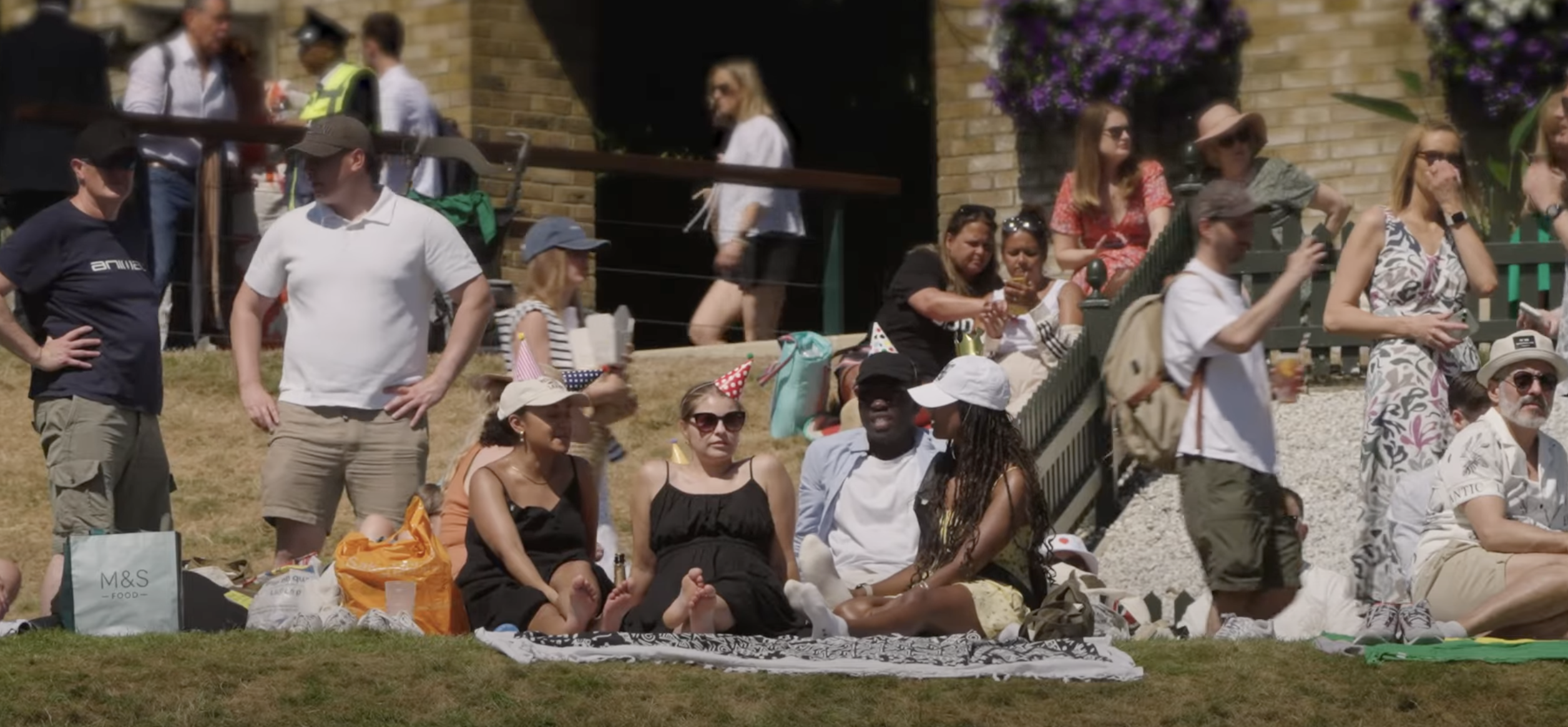In this week’s Our Take: Bicep soundtracks a melting Arctic, Bottega whispers luxury, Wimbledon wins Gen Z, and AI therapy gets a reality check.
Amplifying Arctic Voices
The electronic duo legends that are Bicep have teamed up with Arctic Indigenous artists, and Earth Sonic Project to create Takkuuk, a powerful audiovisual project born from a recent journey to Greenland. Named after the Inuktitut word for “look closely,” the work blends field recordings of melting glaciers with traditional Arctic throat singing, rap, and haunting vocals.
Rather than taking the lead on this project, Bicep acted as facilitators, passing sonic sketches to local artists like Josef Tarrak, throat singing duo Silla, and composer Katarina Barruk, to shape the narrative. The result? A deep, moving exploration of the climate crisis, cultural identity, and creative collaboration. Accompanied by immersive visuals, Takkuuk is both a celebration and a warning, inviting audiences to witness a rapidly changing Arctic through sound, story, and spirit.
The free immersive experience premiered infront of lucky ticketholders in London’s Outernet on the 3rd of July on giant wraparound screens.
Takkuuk looks at climate change in the face, and offers a different lens to comprehend the crisis, and what effect it is having on cultural identity. It may not solve everything, but it’s a creative, human way to spark conversation. This is art as empathy, and music as a mirror to a melting world.
Discreet Luxury By Subtraction

Bottega Veneta’s Latest Campaign is Literally Poetry in Motion. In a world where luxury brands scream for attention, Bottega Veneta has chosen to whisper, in verse.
In a bold move, Bottega Veneta has printed 20,000 poetry books and barely bothered to brand them. Instead of plastering their logo across buses, billboards or someone’s unsuspecting poodle, they slipped it into the spine of a book, a barely there emboss. Blink and you’ll miss it.
The poetry? By Yu Xiuhua, a disabled farmer-turned-literary heavyweight whose raw, defiant verse couldn’t be further from your typical fashion fluff. It’s a brand campaign disguised as a cultural moment, or maybe the other way round. Either way, it’s not selling shoes. It’s selling more metaphor and less monogram, the idea that real luxury doesn’t beg for attention.
Cynical? A bit. Brilliant? Also yes. It’s anti-hype hype at its finest. And in an industry full of shouty logos and louder influencers, Bottega just whispered: And somehow, everyone heard.
It’s an artful disappearing act: The campaign – part cultural commentary, part brand alchemy, poses the question: what if luxury didn’t need to be loud? Bottega’s message is clear: “If you know, you know.” And if you don’t? Well, perhaps you just haven’t read enough poetry.
TennisTok

Wimbledon 2025 reliably served its socials to new heights, all in a bid to win over Gen Z. A strategy that kept the convo going… even when the balls weren’t.
With 150+ TikToks, 250 Insta posts, 200M+ views, and 300K new followers, Wimbledon expanded the entry points, fashion, fandom, fun…without changing the game itself.
From those ‘Wimbledon Walk-Ins’ (aka peak tenniscore) and players’ dance break TikToks, to Hugh Grant casually dozing mid-final, the vibes were immaculate.
Tradition met trend, and when the tennis stopped? The content didn’t.
Suddenly, the crowd was the main character.
Overheard at Wimbledon (plus the fan spin-off Overheard Near Wimbledon) proved that sometimes the best rallies happen off-court. Come for the tennis. Stay for the unfiltered fan commentary.
Match point, Wimbledon.
See you in 2026.
The Real Cost of AI Therapy

We’ve been nudged – gently, then all at once – into embracing AI. At work, it’s a godsend: automating, streamlining, optimising. But at home? That’s where the lines start to blur.
What was once used as an educational tool by students and working-professionals, ChatGPT has quietly developed a new role: therapist. Not licensed, not human, but freely-available 24/7. And for many, especially Gen-Z on lower incomes, that’s enough.
Refinery29’s Tanyel Mustafa decided to test this new kind of confidant. She fed ChatGPT anxiety-laced prompts about a fake family dilemma. The responses? Concerning. Two real-life therapists reviewed the exchange and flagged the advice as “heavy-handed” and emotionally premature.
Because healing in minutes is not truly healing.
The AI therapist, they noted, tended to crown the user as the hero, cast others as villains, and—perhaps most chillingly, encouraged cutting people off, even close family members. It’s not just offering help; it’s mirroring the internet’s most toxic views.
Still, it’s easy to see the appeal: free, fast, always on. And unlike your best friend, it won’t ghost your 2am meltdown.
But if ChatGPT is learning to tell us what we want to hear… what are we really healing from?
